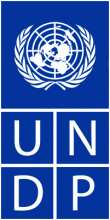Resource information
A key purpose of this publication is to provide an account of SGP’s experience working with Indigenous Peoples over the last twenty-five years. The publication celebrates past achievements and advances critical lessons that can be used in forging new partnerships with Indigenous Peoples in future programming cycles, including opportunities to employ blended finance solutions. Building on the learning-by-doing experience gained over six Operational Phases, combining resources from the GEF with those of other bilateral donors, the SGP has cumulatively delivered financial support to over 25,000 community-based projects with civil society organizations in 133 countries at the global level. Among those countries, Indigenous Peoples’ have been vital partners in at least 94 countries. UNDP and the GEF are committed to ensure that the operational insights, governance mechanisms, and risk-assessed flexibilities to administrative and procurement rules pioneered by the SGP are documented. This body of experience can help Indigenous Peoples to become effectively engaged in these efforts not just through small grants but also expanding their capabilities to deal with medium and full-size GEFprojects. The publication notes that it is incumbent on the SGP, as a GEF Corporate Programme nested within the partnership of GEF agencies, to seek synergies and share solutions in acting as a tried-and-tested delivery mechanism. As one of the early pioneers working with indigenous peoples, the experience of the Small Grants Programme (SGP), funded mainly by the Global Environment Facility and implemented by the United Nations Development Programme (UNDP), has been repeatedly recognized as one of the “primary modalities of engagement” (IEO 2017) for indigenous peoples with the GEF. This publication provides an account of GEF SGP’s experience working with indigenous peoples over the last 25 years. It also celebrates past achievements and advances critical lessons that can be used in forging new partnerships with indigenous peoples in future programming cycles, including opportunities to employ blended finance solutions. GEF Focal Area and thematic distribution SGP has provided grants to Indigenous Peoples across a range of thematic areas, needs and opportunities. Of those themes, biodiversity continues to be the dominant GEF focal area for SGP projects involving Indigenous Peoples, with the themes of climate change and land degradation steadily increasing. Since Indigenous Peoples often inhabit areas of high biological diversity, a strong correlation between areas of biological diversity and areas where high cultural diversity has been established. The aggregated totals of SGP projects are presented by region and by focal area in Figure 3. Approximately 51 percent of SGP projects working with Indigenous Peoples are allocated under the biodiversity focal area; 16 percent under climate change; 15 percent under land degradation; and the remaining 18 percent under international waters, chemicals and waste, and multi-focal area interventions. These figures are in line with the focal area distribution of the overall SGP portfolio, where biodiversity projects represent nearly half of the investments, while other focal area projects are increasing. About: SGP has supported over 20,000 community-based projects in biodiversity conservation, climate change mitigation and adaptation, prevention of land degradation, protection of international waters, and reduction of the impact of chemicals, while generating sustainable livelihoods. The GEF Small Grants Programme (SGP) provides financial and technical support to communities and Civil Society Organizations to meet the overall objective of global environmental benefits secured through community-based initiatives and actions. Launched in 1992 with 33 participating countries, the Small Grants Programme has expanded to provide assistance to 125 countries currently. The SGP believes that community-driven and civil society-led initiatives can generate environmental benefits, while supporting sustainable livelihoods, gender equality and civil society empowerment. These are actions needed at the local and regional level to address global environmental challenges and complement other areas where the GEF works. Although Programme funding is modest, it enables communities to take measured risks. A poor and vulnerable community, for example, can use a small grant to develop capacity for a larger project. Once a community has proven the effectiveness of an innovative idea or strategy on the ground, it can often scale up impact through networking with other communities and partner organizations. These results, in turn, usually attract additional donors and government support for wider application.



